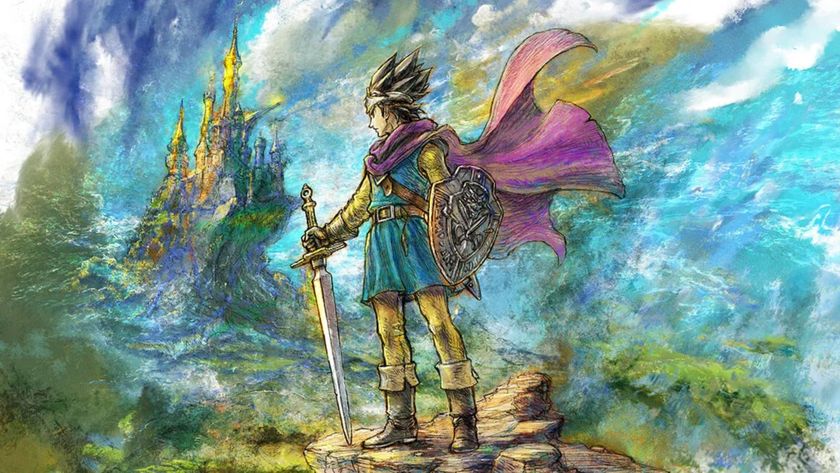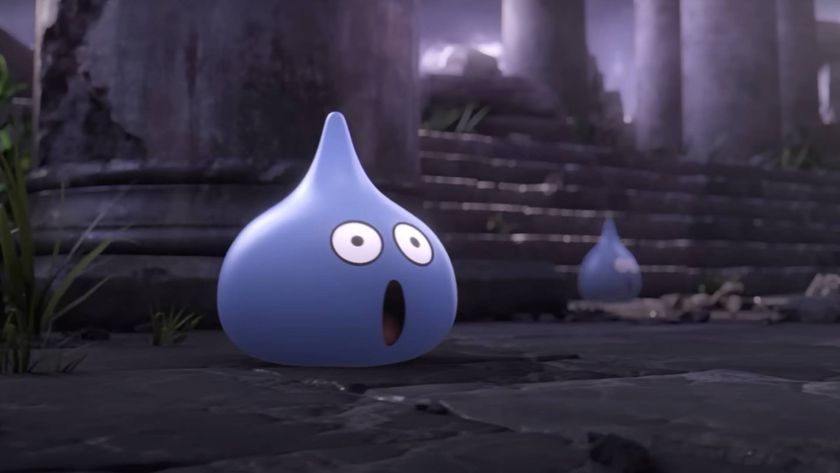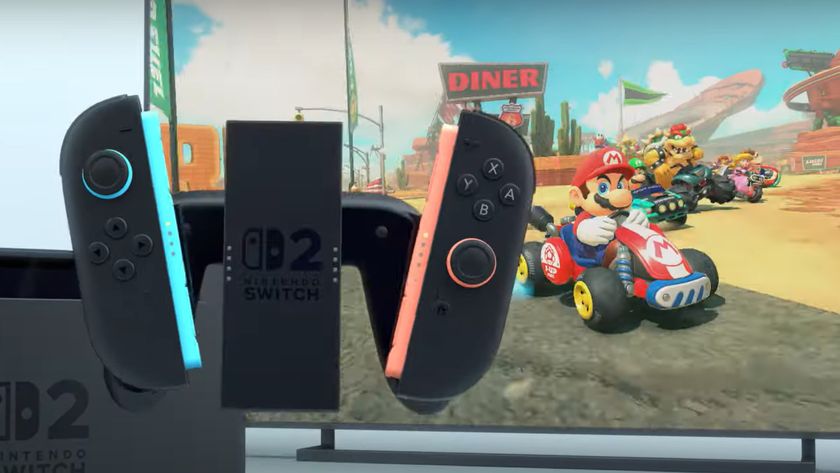Japan's Dragon Quest fever
An investigation of the RPG phenomenon, straight from Tokyo
So, Dragon Quest. Big in Japan, eh? That’s what they say. Or rather, that’s what their figures say. Shifting an eye-watering 2.3 million copies in its first week on sale, Dragon Quest IX: Sentinels of the Starry Skies is undoubtedly a big financial cheese. Figures don’t capture the magic, however. Leave numbers to do the talking and they tell a sanitized tale. Emphasizing chart positions and share prices, they certainly don’t mention the Dragon Quest cafe where gamers gather to scarf on culinary effigies of their favorite monsters.
No, to tell the true story of Dragon Quest, you have to live Dragon Quest. And so it was that we came to walk the streets of Tokyo. Our mission: spend four days in the heart of Questing territory to assess the true impact of Dragon Quest IX. And, ideally, politely eat everything put in front of us without pulling an ‘I’m going to be sick’ face.
Armed with a DS, a fistful of yen and not a word of Japanese known, we had four days to get to the heart of Quest-mania…
Day 1: Akihabara
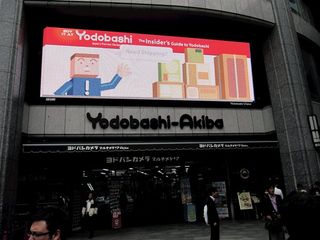
First things first: Akihabara? Not what it once was. Our guide explains that the rise of uber-department stores has sucked the life from Tokyo’s geek paradise. Stores cower in the shadow of the mighty Yodobashi Camera – imagine Walmart selling only electronics and you’re roughly there. Giant screens beam out deals of the day, while a rabble of clerks bellow thank-yous for using their store. For a nation built on demure tradition, these guys like to yell. We enjoy a good yell, but these guys, like, really yell.
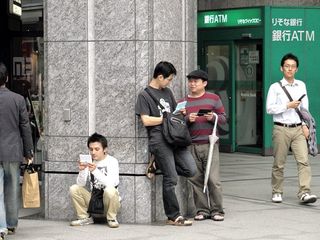
Block out the bellows and the sound of clacking DS buttons fills the air. Since Dragon Quest IX’s June 2009 launch, Yodobashi has become the impromptu home of IX’s Wi-Fi Tag mode. Known locally as ‘surechigai’, or ‘chance encounter’, DSes connect via local Wi-Fi to share character data and rare treasure maps. No maps? No access to the game’s rarest items. For the obsessive Quester, surechigai is an absolute must.
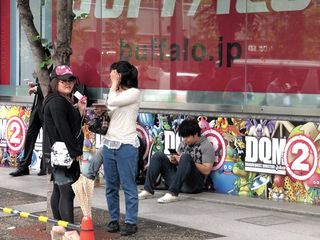
Known for its huge games section (with dedicated Dragon Quest shelf, no less), Yodobashi became the natural home for Wi-Fi Questers. Initially they gathered inside, around DS download stations, until store managers grew tired of their aimless lurking. Players are now herded into a special cordoned area at the front of the store, like some dystopian containment camp, albeit plastered with ads for the latest Square Enix products (canny advertising, there).
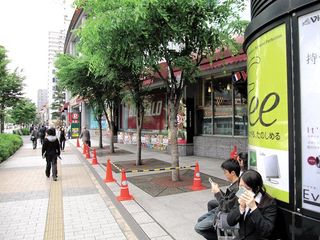
Even at ten in the morning, bleary eyed gamers are already sitting engrossed on nearby benches. How wonderfully shameless the hobby is. Back home we still get a flutter of excited recognition when we spot a single DS being played on a train. Here they’re as commonplace as mobile phones. Strangely, for a mode revolving around social interaction, there is an eerie silence among the gamers. DSes hook up like electronic hussies, but their human masters refuse to look each other in the eye.
Sign up to the 12DOVE Newsletter
Weekly digests, tales from the communities you love, and more

By eleven, the fenced section is heaving. Salarymen wander past the pen without batting an eyelid. Upon closer inspection it appears the majority of the teens are playing Dragon Quest Monsters: Joker 2. Dragon Quest IX has had a year in the spotlight – an epic run for a nation driven by the Next Big Thing – and now it’s Joker’s turn. Venturing into Yodobashi, we find DQIX has already entered a budget ‘classics’ range.
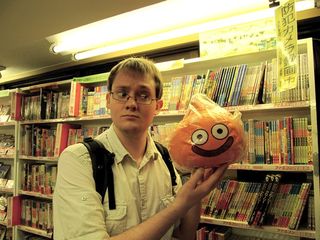
Wander away, down back alleys full of kooky boutiques piping NES music into the street, and Dragon Quest is still a presence. A trip to Akihabara isn’t complete without visiting Super Potato – a retro nirvana where Super Famicoms pile up to the ceiling and ROBs stare down with their dead eyes. Nothing says ‘no shoplifting’ like the gaze of a peripheral with nothing to lose. After Mario, Dragon Quest easily occupies the most shelf space.

And because the Famicom is still going strong here – Nintendo only stopped production in 2003 and emulators are rife – you can buy brand new Famicom games for a few bucks. Bizarrely, Super Potato stocks more Famicom Dragon Quests than Yodobashi has modern iterations. Fans may have moved onto new Questing pastures, but Super Potato tells us that these games don’t go down without a fight. A shelf life of 24 years? Come the nuclear apocalypse all that’ll be left is cockroaches, Big Macs and Dragon Quest. Hope cockroaches like grinding!
